Filter by
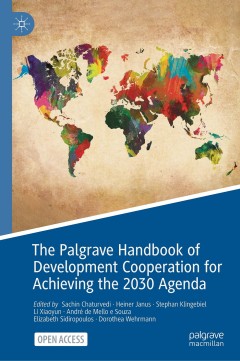
The Palgrave handbook of development cooperation for achieving the 2030 agend…
This open access handbook analyses the role of development cooperation in achieving the 2030 Agenda in a global context of ‘contested cooperation’. Development actors, including governments providing aid or South-South Cooperation, developing countries, and non-governmental actors (civil society, philanthropy, and businesses) constantly challenge underlying narratives and norms of developme…
- Edition
- -
- ISBN/ISSN
- 9783030579388
- Collation
- xxxii, 730p. : ill.
- Series Title
- -
- Call Number
- 338.927 PAL p
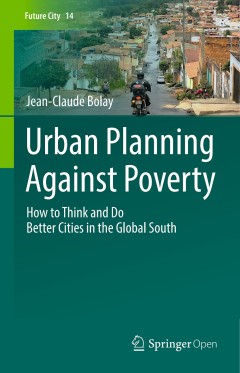
Urban planning against poverty : how to think and do better cities in the glo…
This open access book revisits the theoretical foundations of urban planning and the application of these concepts and methods in the context of Southern countries by examining several case studies from different regions of the world. For instance, the case of Koudougou, a medium-sized city in one of the poorest countries in the world, Burkina Faso, with a population of 115.000 inhabitants, all…
- Edition
- -
- ISBN/ISSN
- 9783030284190
- Collation
- viii, 214p. : ill.
- Series Title
- -
- Call Number
- 307.1216 BOL u
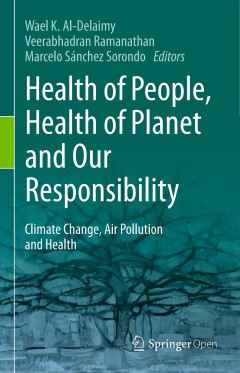
Health of people, health of planet and our responsibility : climate change, a…
This open access book not only describes the challenges of climate disruption, but also presents solutions. The challenges described include air pollution, climate change, extreme weather, and related health impacts that range from heat stress, vector-borne diseases, food and water insecurity and chronic diseases to malnutrition and mental well-being. The influence of humans on climate chang…
- Edition
- -
- ISBN/ISSN
- 9783030311254
- Collation
- xxiii, 417p. : ill.
- Series Title
- -
- Call Number
- 363.73874 HEA h
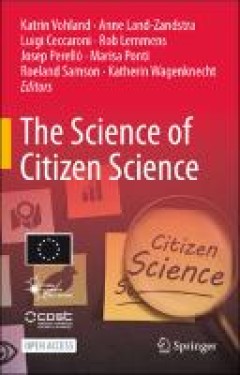
The science of citizen science
This open access book discusses how the involvement of citizens into scientific endeavors is expected to contribute to solve the big challenges of our time, such as climate change and the loss of biodiversity, growing inequalities within and between societies, and the sustainability turn. The field of citizen science has been growing in recent decades. Many different stakeholders from scientist…
- Edition
- -
- ISBN/ISSN
- 9783030582784
- Collation
- vii, 529p. : ill.
- Series Title
- -
- Call Number
- 303.483 SCI s
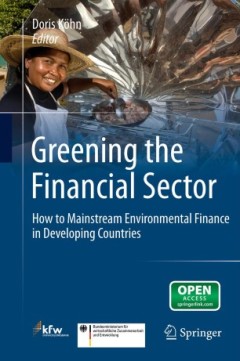
Greening the financial sector : how to mainstream environmental finance in de…
Given the manifold challenges of financial sectors in developing and transition countries, one might be tempted to believe that embarking on “green” finance is not a priority for financial systems development. However, there are a number of arguments against this view. Environmental finance, particularly energy efficiency and renewable energy (EERE) finance, can and should serve as an inter…
- Edition
- -
- ISBN/ISSN
- 9783642050879
- Collation
- xiv, 249p. : ill.
- Series Title
- -
- Call Number
- 332.1 GRE g
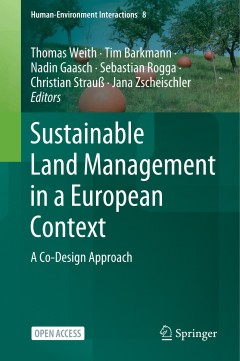
Sustainable land management in a European context : a co-design approach
This open access book present and discuss current issues and innovative solution approaches for land management in a European context. Manifold sustainability issues are closely interconnected with land use practices. Throughout the world, we face increasing conflict over the use of land as well as competition for land. Drawing on experience in sustainable land management gained from seven y…
- Edition
- -
- ISBN/ISSN
- 9783030508418
- Collation
- ix, 347p. : ill.
- Series Title
- -
- Call Number
- 333.73 SUS s
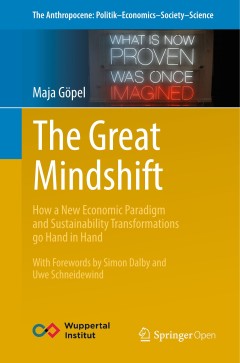
The great mindshift : how a new economic paradigm and sustainability transfor…
Sustainable development is the 21st Century’s wicked problem. After 40 years into this agenda have reversed only few unsustainable trends we hear the call for a paradigm shift, transformation, radical change or system innovations in order to finally change course. But what does this actually mean? And how do we put it into practice? This book describes the path ahead. It combines system tr…
- Edition
- -
- ISBN/ISSN
- 9783319437668
- Collation
- xxiii, 184p. : ill.
- Series Title
- -
- Call Number
- 338.927 GOP g
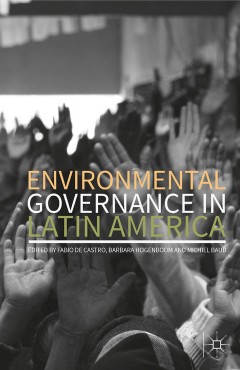
Environmental governance in Latin America
The multiple purposes of nature – livelihood for communities, revenues for states, commodities for companies, and biodiversity for conservationists – have turned environmental governance in Latin America into a highly contested arena. In such a resource-rich region, unequal power relations, conflicting priorities, and trade-offs among multiple goals have led to a myriad of contrasting initi…
- Edition
- -
- ISBN/ISSN
- 9781137505729
- Collation
- xii, 338p. : ill.
- Series Title
- -
- Call Number
- 333.7098 ENV e
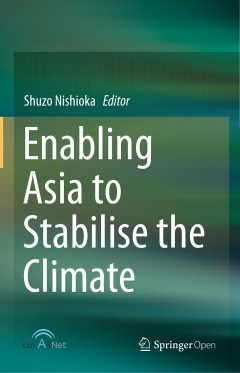
Enabling Asia to stabilise the climate
This book presents good practices in Asia and ASEAN countries for effectively promoting advances in response to climate change, which can help to achieve sustainable development in Asia and around the world. As a proposal, the aim is to influence the discussions at COP 21 by providing a positive agenda with concrete actions from an Asian perspective. The book is divided into three parts. Part 1…
- Edition
- -
- ISBN/ISSN
- 9789812878267
- Collation
- x, 270p. : ill.
- Series Title
- -
- Call Number
- 338.927 ENA e
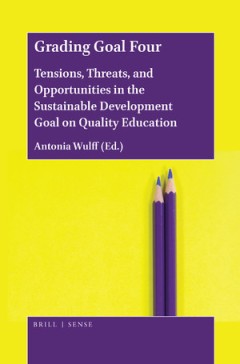
Grading goal four : tensions, threats, and opportunities in the sustainable d…
For the third time in three decades world leaders reaffirmed their promise of "Education For All" when adopting Sustainable Development Goal 4 in 2015. It is the most far-reaching commitment to quality and equity in education so far, yet, there is no consensus on what the agenda means in practice. With a decade left until the 2030 deadline, Grading Goal Four calls upon the education communi…
- Edition
- -
- ISBN/ISSN
- 9789004430365
- Collation
- xxviii, 469 p. : ill.
- Series Title
- -
- Call Number
- 379 GRA g
 Computer Science, Information & General Works
Computer Science, Information & General Works  Philosophy & Psychology
Philosophy & Psychology  Religion
Religion  Social Sciences
Social Sciences  Language
Language  Pure Science
Pure Science  Applied Sciences
Applied Sciences  Art & Recreation
Art & Recreation  Literature
Literature  History & Geography
History & Geography